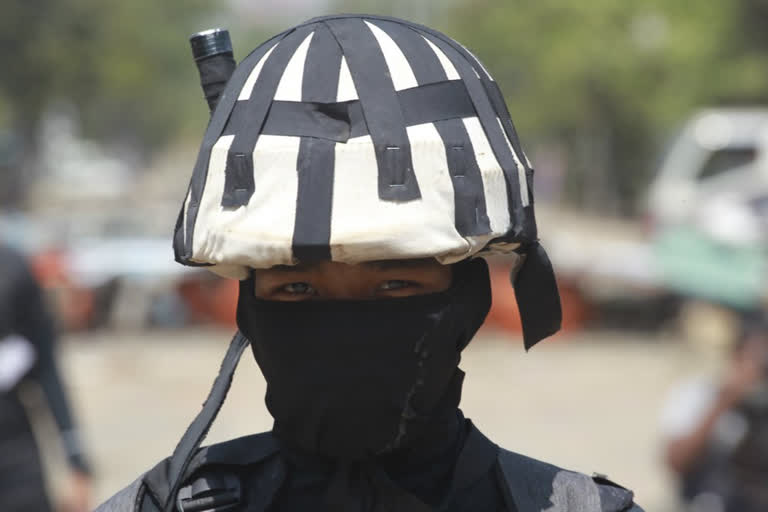Mandalay (Myanmar): Health care workers marched through Myanmar's second-biggest city at dawn Sunday, kicking off another day of countrywide protests against last month's coup. Elsewhere police used violence against protesters and security forces shot dead at least one person.
About 100 doctors, nurses, medical students and pharmacists, wearing the long white coats, lined up on the main road in Mandalay to chant slogans and voice their opposition to the Feb. 1 coup that toppled the elected civilian government of Aung San Suu Kyi.
Mandalay has been a major centre of opposition to the takeover, and later in the day engineers there held what has been dubbed a “no-human strike,” an increasingly popular tactic that involves lining up signboards in streets or other public areas as proxies for human protesters.
The protests are part of a broader civil disobedience movement, including boycotts and strikes, that aims to restore the civilian government and return Myanmar to its slow march towards democracy that began nearly a decade ago when the military began loosening its grip after five decades of rule
In recent weeks, however, the numbers of protesters have fallen off and the death toll has climbed in the face of lethal force by police and soldiers shooting into crowds. The independent Assistance Association for Political Prisoners had verified 247 deaths nationwide.
Read: Massive quake rocks Japan, tsunami warning issued
While Mandalay’s early morning march was unmolested by security forces, at least one protester was shot dead Sunday in Monywa, another central Myanmar city, according to the online news site Myanmar Now and numerous social media posts.
Myanmar Now, citing a doctor in Monywa, identified the victim as Min Min Zaw, who was shot in the head as he was helping assemble barricades for a protest. Virtually all the dead since the coup have been shooting victims, and in many cases, have been shot in the head.
Elsewhere, students, teachers and engineers marched in Dawei, a city in southeastern Myanmar that has become a hotspot for opposition and has seen at least five killings by security forces.
Read: Hindu journalist killed in Pakistan's Sindh province
On Sunday, protesters broke into small groups and varied the timings of their marches in an effort to avoid confrontations. In the initial period after the coup, protests there had huge turnouts. But after police stated shooting into crowds, turnouts declined.
In a more rural outlying area, protesters from several villages in Launglone Township held their protest on motorbikes.
In Yangon’s Thaketa neighbourhood, a funeral was held Sunday for 15-year-old high school student Aung Kaung Htet, who was killed a day earlier, Myanmar Now reported.
According to posts on social media, Thaketa was one of several areas where police fired their guns Sunday, the others including Tachileik and Taunnggyi in Shan State in eastern Myanmar, and Gangaw, a town in Magway Division in the west-central part of the country.
The protesters' cause over the weekend received support from demonstrations in several places abroad, including Tokyo, Taipei in Taiwan and on Times Square in New York City.
While nearly 250 deaths have been confirmed since the coup, the Assistance Association for Political Prisoners says the actual total, including cases where verification has been difficult, is probably much higher.
The group also has confirmed that 2,345 people have been arrested or charged since the coup, with 1,994 still detained or sought for arrest.
Read: Striking Myanmar rail workers move out as protests continue
AP



